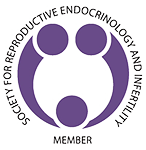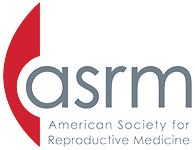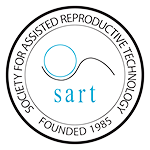Female infertility can feel incredibly frustrating for aspiring parents to navigate. There are treatments for infertility in women that can help you plan a journey to parenthood. Your NewLIFE Fertility specialist is here to walk you through every step of your fertility testing and treatment.
Fertility Medication
Depending on the reason and previous treatment attempts for your infertility, your fertility specialist may recommend medication. Fertility medications often treat hormone imbalances and ovulation disorders, which can make conceiving more difficult.
Before beginning any medication, your fertility specialist will administer testing to help uncover any causes of fertility issues and review all your options, so you can make an informed decision on your fertility treatment.
Common fertility medications include:
- Clomiphene citrate (Clomid)
- Gonadotropins
- Metformin
- Letrozole
- Bromocriptine
Many fertility medications work similarly to natural hormones your body already has. They help trigger ovulation and balance your hormone levels to make it more likely that you release an egg during ovulation. During a typical menstrual cycle, your body will typically only release one mature egg. The use of fertility medications also encourages your body to grow multiple egg follicles to maturity so we can collect multiple mature eggs during one cycle instead of one egg follicle during a typical menstrual cycle. This is an important step in many fertility treatments, such as intrauterine insemination (IUI) and in vitro fertilization (IVF).
Surgical Fertility Treatments
Surgical procedures to treat infertility problems in women are also available. If our specialists uncover or suspect structural causes of infertility, we may recommend a surgical procedure to improve your fertility.
Laparoscopic or hysteroscopic surgery are minimally invasive surgical options that can repair or correct problems with your reproductive anatomy. You may need this surgery to remove polyps, fibroids, or endometriosis tissue. Endometriosis is a common condition where the tissue that lines your uterus grows outside the uterus and can lead to infertility.
Tubal surgeries focus on the fallopian tubes. If your fallopian tubes are blocked in some way, your fertility specialist can clear the blockage or make a new tubal opening. Tubal surgeries are also typically done laparoscopically, so you can recover quickly.
Providers at NewLIFE Fertility can also perform Tubal Ligation Reversal procedures. These surgical procedures reconnect your fallopian tubes to the rest of your reproductive system so you can get pregnant again. For some, IVF can be an effective treatment alternative to tubal ligation reversal, and your fertility specialist will review your treatment options with you.
Assisted Reproductive Technology
Assisted reproductive technology is a treatment option for those whose other treatment options haven’t been effective and include IVF and IUI.
IVF is a physical, emotional, and financial commitment that requires many appointments and close monitoring by your fertility specialist. You will take medication to begin ovarian stimulation, which enhances the development of your eggs. Your fertility specialist will monitor the growth of your ovarian follicles. When they are grown to maturity, you will be instructed to administer a “trigger shot” to signal the release of the mature eggs from the ovaries.
Three days later, we will conduct an egg retrieval where your fertility specialist will conduct a minimally invasive procedure to collect the mature eggs before they are released from the ovary. In our state-of-the-art IVF lab, we’ll fertilize the egg with sperm and monitor the embryo for five days while it grows and develops into a blastocyst. The day-5 embryo will then be transferred into your uterus for implantation, hopefully resulting in a pregnancy.
IUI is a procedure in which sperm is delivered directly into the uterus for an improved chance of fertilizing an egg. Your fertility specialist may need to increase egg production through a process called ovulation induction (OI). Once you’re ovulating, your fertility specialist will prepare a sperm sample from your partner or a donor and perform a sperm wash. This allows us to select the best quality sperm. We will then insert a catheter into your uterus and place the semen directly into your uterus.
Discuss Fertility Treatments With Your Fertility Specialist
For women struggling with infertility, you can still achieve your dreams of having a baby with the right fertility treatments. Schedule an appointment with a NewLIFE Fertility specialist to discuss female fertility treatments today.





